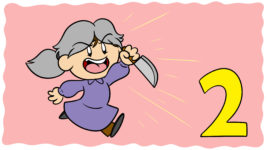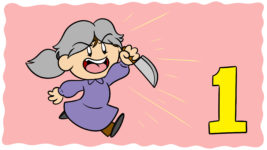It’s true that sports have had a difficult time breaking out of nonfiction (after all, there’s certainly no shortage of sports memoirs, biographies, and histories); despite the efforts of writers including Ernest Hemingway, Alan Sillitoe, Nick Hornby, David Foster Wallace, and Haruki Murakami, sports rarely seem to muscle into the literary sphere, and that’s a shame. Done well, a sharp game of soccer or a Herculean footrace can heighten drama, foreground wider conflicts, and express cultural identity in a light-hearted yet sincere manner. After all, the wonderful dramatic paradox of sport is that it at once matters more than anything and yet doesn’t matter at all. It’s life or death, but it’s just a game. There’s inherent ironic drama in our tendency to, as Tim Parks puts it in A Season with Verona, ‘invest so much emotion in something that we all know, in the end, is meaningless.’
So how can you do to your sport of choice what Murakami did to running or what Wallace did to tennis? Let’s take a look.
Tell a story, and then tell a wider story
A sports game is inherently dramatic: you’ve got a set beginning, middle, and end; a ready-made conflict; and a whole cast of competing heroes. In comparison, real life is, as Nick Hornby wrote in Fever Pitch, ‘paler, duller, and contains less potential for unexpected delirium.’ Harness that potential for delirium; you’ve got all the aspects of a story already, so double down. Pile on the narrative elements.
Sports come with a ready-made narrative – use it.Click To TweetThis means framing events as plot points. Borrow from literary styles and genres: write like it’s a thriller, throw some melodrama our way, write like your striker is a conquering hero carving his way through goblin hordes or a trapped renegade dodging gunmen. Give us rags-to-riches; give us cliffhangers; throw in fables, monologues, fairy stories, mystery, comedy… anything to hammer home the fact that this game of soccer/tennis/squash is a story.
And then, broaden your scope. The best sports writing (both in fiction and in long-form nonfiction) knows that sports aren’t self-contained; they exist within and are vital to outside contexts. This is why David Foster Wallace’s essay ‘Federer: Both Flesh and Not,’ on the godliness of Roger Federer, writes:
Beauty is not the goal of competitive sports, but high-level sports are a prime venue for the expression of human beauty. The relation is roughly that of courage to war.
The human beauty we’re talking about here is beauty of a particular type; it might be called kinetic beauty. Its power and appeal are universal. It has nothing to do with sex or cultural norms. What it seems to have to do with, really, is human beings’ reconciliation with the fact of having a body.
– David Foster Wallace, ‘Federer: Both Flesh and Not,’ Both Flesh and Not: Essays
Sure, sports writing can just be about the sport, but you’re selling yourself short if you choose not to pick up on the weirdness of sports; on why we play games in the first place, why we get so excited about them, why they’re tied so closely to our tribal/national identities. It’s why C.L.R. James’ book Beyond a Boundary is so effective: it expands cricket until the sport stands as a microcosm for the history of cultural expression, colonialism, and national identity in the West Indies.
Double down on heroism…
It’s blindingly obvious to anyone who’s lived in a sport-obsessed culture that a big part of the appeal of sports is its tendency to spawn mighty heroes. This has always been true; you need only look to the great Greek Olympians for confirmation.
Today, you can barely find a kid whose hero isn’t a soccer/football/basketball/baseball/hockey player. These muscular and graceful exemplars of the human form strike some deep chord in our psyches and, as Wallace suggested, their ‘power and appeal are universal.’
With all the talk of universal appeal and heroic physiques, it’s tempting to jump to Carl Jung and Joseph Campbell’s talk of character archetypes and the hero’s journey – tempting and, perhaps, wise. We love our sports heroes, and that should be reflected in our writing.
Sportspeople tap into archetypal ideas of heroism. Click To TweetTales of individual growth and eventual heroism, of overcoming the odds stacked against a determined hero, will emphasize a sport scene’s inherent drama and foreground the things we love about sport in the first place. Pretend for a moment that you’re writing a fantasy novel, not a football game, and let your quarterback charge forth, armor gleaming in the late sun, his enemies quaking before him.
…But show us behind the gloss
We all love heroes, snapshot goals, and home runs, but even the most tired pundit can point out a bullseye or a bicycle kick; instead, show us the grit. Behind the glitz and the glamor, show us the doping of Olympian cyclists, the cruelty of horse racing, the husband who comes home drunk and angry when his team loses. Give us the lows as well as the highs; only then do we get the breadth of the whole experience, which in turn lends authenticity to your embedded sports narrative.
This is also a great way of making sure your sports game is relevant to the outside story. Since the grit tends to exist around the game itself rather than within the actual minute-by-minute play, you can use, for example, the hooliganism and racism of British soccer to tie the more overt and less serious conflicts of your inner story (i.e. of the dramatized football game) to the more serious themes of the broader narrative.
Exploring life around sports helps tie the game to broader themes.Click To TweetThe inclusion of both the glitz and the grit also helps foreground the ambivalence and mystery of our grand love affair with sports. Hornby puts it best:
I fell in love with football as I was later to fall in love with women: suddenly, inexplicably, uncritically, giving no thought to the pain or disruption it would bring with it.
– Nick Hornby, Fever Pitch
Tap into emotion
Every good story should elicit in its readers some emotional response. Sports matches, themselves self-contained stories, are no different; their viewers and players are taken up to the highest planes of joy and triumph or else are humiliated, castrated, thrown down into despair. Emotion is part of the inherent melodrama of sport, and it comes less from the stakes of the conflict (for there are none, not really) than from the willing extension of belief, which we may as well call ‘faith’.
That’s where we’re playing: the heavy field of faith. It’s been disparagingly said that soccer fans are all members of some grotesque cult, and while there’s no blood ritual involved, there is admittedly a whole lot of near-spiritual belief being thrown around. As such, the stakes turn out to be high after all, and are tied up in the sheer audacity of believing in something beyond yourself.
If this all sounds very lofty, that’s because it is. And that loftiness – that spiritualism – needs to be reflected in your sports writing. You need to be able to capture the weeping middle-aged men clutching at each other after their star striker scores that final goal; the bitter, emasculated rage of a fan whose team were just defeated. And, in-game, you need the elation of the batter who’s hit it out of the park, the existential despair of a goalie who knows he’s let everyone down.
This means emotive language; sensory information; and trimmed, potent sections of direct thought. Dialogue can help, as can exposition, but be careful not to overdo it. Sport’s typically quick pace (except you, golf) lends itself to exciting, punchy writing, and the last thing you want to do is sacrifice that in favor of thick, lumpy exposition.
Avoid jargon
What will ultimately separate fictional sports writing from journalistic sports writing is the use of jargon. While you can get away with a bit of this in journalism (after all, you’re writing for fans who presumably know what you’re on about), in fiction you can’t bet on an expert readership and so reliance on jargon is going to come across as confusing and a little lazy. After all, you’re writing fiction now: think up your own descriptive phrases, don’t rely on clichés.
Readers understand aliens and magic: if they don’t get sports jargon, that’s on the writer.Click To TweetIf you really have to lapse into specialist terminology, find a way to define it for the casual reader. After all, if readers can learn all the magical terms in the Harry Potter series (including the fictional sport of Quidditch), they’re capable of absorbing and appreciating real-life jargon in the proper context.
Play ball!
So, there we have it. Sport has been gradually worming its way into books clutched by literary snobs for a while now, and for good reason. It sits in the human psyche as something enduring and constant, and it says strange, fascinating things about us as a species.
Sport’s inherent drama can enliven even the driest narrative, and its pitched conflict, its heroic players, and its spiritual overtones can pull a story (or a story’s characters) into the realm of the classical epic. A self-aware writer can manipulate these age-old narrative patterns and mechanisms to form startling juxtapositions, complex dynamics, and tales of near-spiritual transcendence. Literature built on the back of sport – who’d have thought it?
Which authors do you think write sport brilliantly? How have you tackled sport in your own work? Let me know in the comments, or check out How To Write An Epic Battle Scene and Why You Need To Know About Sense Writing for some enduring truths that apply to writing about sports.





